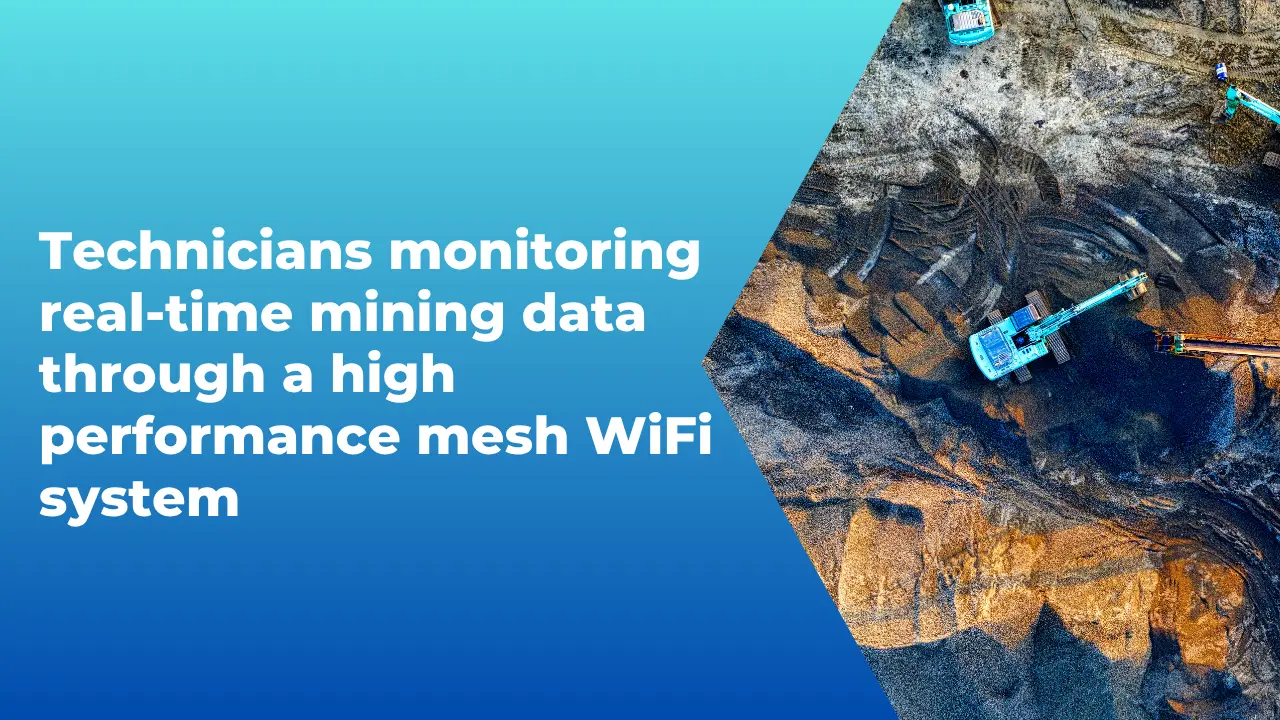In the fast-evolving world of mining, connectivity is no longer optional—it’s essential. As mining operations move deeper underground and across vast open-pit areas, maintaining a stable and secure WiFi network has become one of the top priorities for the industry. In 2025, the revolution in wireless mesh networking is transforming how mining companies connect people, machines, and data—delivering safer, faster, and smarter operations.
The Need for Reliable Connectivity in Mining
Mining environments are among the toughest places for communication systems. Traditional WiFi solutions often fail underground due to harsh conditions, heavy machinery interference, and physical obstructions such as rocks and tunnels. Yet, real-time data sharing is crucial for operations—whether it’s monitoring equipment, tracking personnel, or ensuring worker safety.
This is where wireless mesh networks (WMNs) are changing the game. Unlike traditional networks that rely on a single access point, mesh networks create a self-healing, multi-node system where each device can communicate with others, ensuring uninterrupted connectivity even if one node goes down.
Why Mesh WiFi Is the Future of Mining Connectivity
1. Uninterrupted Connectivity in Harsh Environments
A mesh WiFi network ensures strong signal coverage across underground tunnels and open-pit sites. Its ability to route data dynamically prevents downtime, making it a high-performance wireless mesh network ideal for mission-critical mining operations.
2. Enhanced Worker Safety and Real-Time Tracking
With mesh connectivity, miners and vehicles can be tracked in real time. This allows control centers to respond instantly to emergencies, improving safety protocols and reducing accident risks.
3. Simplified Deployment and Scalability
Installing cables in underground mines can be expensive and time-consuming. Wireless mesh networks are flexible and scalable, allowing new nodes to be added easily as operations expand, without costly rewiring.
4. Reliable Wireless Connectivity for Autonomous Systems
Modern mining equipment—like autonomous trucks, drills, and sensors—relies on low-latency WiFi connections. Mesh systems deliver reliable wireless connectivity, ensuring data synchronization between control rooms and field equipment with minimal lag.
Best WiFi Solutions for Underground Mines in 2025
The latest mesh WiFi routers and ruggedized access points are purpose-built for mining conditions. They feature dust- and water-resistant designs, extended coverage, and intelligent network management tools. Leading-edge systems integrate AI-based network optimization to adjust to dynamic mining layouts automatically.
When selecting the best WiFi solution for your mine, focus on:
-
High throughput and low latency performance
-
Rugged, industrial-grade hardware
-
Self-configuring mesh architecture
-
Centralized monitoring and control capabilities
How Mesh WiFi Improves Operational Efficiency
By connecting IoT sensors, cameras, and communication devices, mesh WiFi provides a unified digital infrastructure. This integration supports:
-
Predictive maintenance through continuous monitoring
-
Real-time video and voice communication
-
Enhanced decision-making with live data analytics
The outcome is clear: greater productivity, improved safety, and reduced downtime.

Conclusion: The Future Is Wireless, Smart, and Scalable
In 2025 and beyond, wireless mesh networks are redefining mining connectivity. From underground tunnels to expansive open pits, these networks provide reliable, high-performance WiFi that powers safer and more efficient mining operations. Investing in mesh WiFi solutions today ensures your mine is ready for tomorrow’s smart, connected future.
FAQs
Reliable WiFi enables real-time communication, safety alerts, and equipment tracking in underground mines. It supports connected devices, autonomous machinery, and worker monitoring systems that depend on continuous wireless connectivity for safe and efficient operations.
A wireless mesh network is the most effective WiFi solution for underground mining. Unlike traditional access point systems, mesh WiFi creates a self-healing network where multiple nodes communicate with each other—providing strong, uninterrupted coverage in tunnels and remote areas.
Yes. Rugged mesh WiFi systems are designed for tough conditions. They feature dust-proof, water-resistant, and vibration-tolerant hardware that withstands extreme underground environments while maintaining reliable data transmission.
Mesh WiFi coverage depends on the number of nodes and layout of the tunnels. Typically, each node can cover 100–300 meters, and by linking multiple nodes, the network can extend across the entire mining site—both underground and on the surface.
While initial setup costs vary, wireless mesh networks are more cost-effective than traditional wired networks. They reduce the need for extensive cabling and are easier to expand as mining operations grow, saving both time and maintenance costs in the long term.
Key features include:
High-speed and low-latency performance
Self-configuring mesh architecture
Ruggedized industrial-grade access points
Centralized monitoring dashboard
